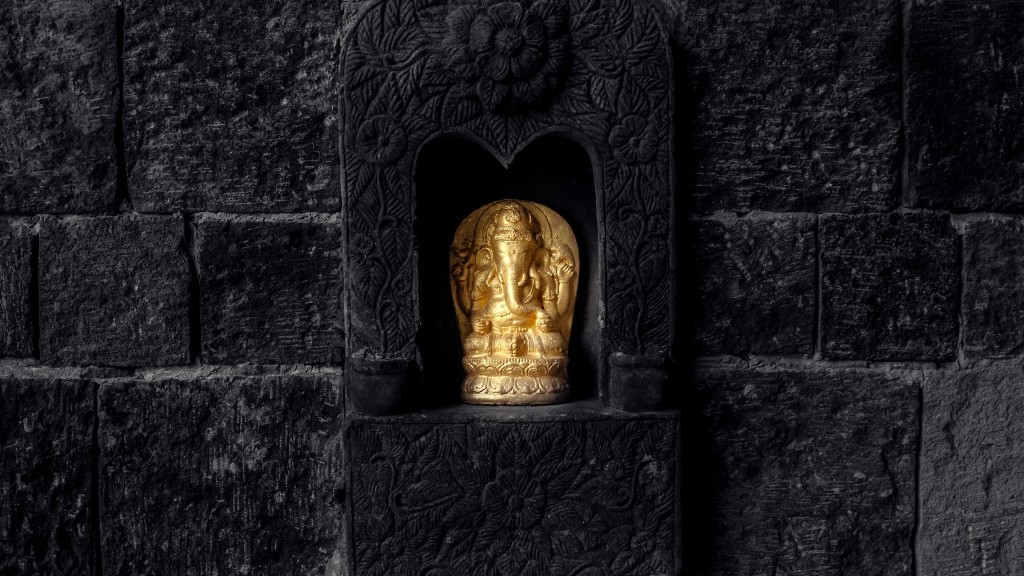Zen Buddhism is a school of Mahayana Buddhism that stresses the value of meditation and intuition over ritualistic practices and intellectual study. followers of Zen believe that enlightenment can be attained through a direct experience of one’s own true nature, rather than through study or observation. Zen is often described as a “way of life” rather than a religion, and Zen Buddhists often seek to live in accordance with the principles of mindfulness, compassion, and simplicity.
There are several key beliefs that are central to Zen Buddhism. These includes the following:
1. The Three Treasures: Buddha, Dharma and Sangha. These represent the core teachings of Buddhism, and the Buddha is seen as the founder of the religion.
2. The Four Noble Truths: these truths offer a fundamental explanation of the human condition and the way to end suffering.
3. The Eightfold Path: this path outlines the steps necessary to achieve enlightenment and end suffering.
4. Karma and rebirth: the belief that our actions have consequences in this life and future lives.
5. Enlightenment: the goal of Zen practice, which is achieved through meditation and other spiritual practices.
What are three main ideas of Zen Buddhism?
Buddha, Dharma, and Sangha are the three most important concepts in Zen Buddhism. Buddha is the awakened one, Dharma is the teachings of Buddha, and Sangha is the community of practitioners who follow his teachings.
Zen is a practical philosophy that is neutral against other religions. It sees no contradiction to belonging to more than one religion. Compassion is at the heart of Zen, and it welcomes all who seek to practice its teachings.
What is the ultimate goal of Zen Buddhism
Zen is a school of Buddhism that emphasizes the importance of meditation and mindfulness in daily life. The goal of Zen is to achieve perfection of personhood, and za-zen meditation is one of the primary methods used to achieve this. Zen is not an ideology, but a way of living that can be followed by people of any belief system.
Zen is not a religion in the traditional sense of the word. It does not have a god to worship, or any ceremonial rites to observe. It also does not believe in an afterlife, or that the soul needs to be looked after by someone else.
How do I practice Zen Buddhism?
The most important thing is to focus on one thing at a time. This will help you to do it slowly and deliberately, and to do it completely.
It is also important to put space between things, and to develop rituals. This will help you to focus on what is important, and to devote time to sitting and being present.
The four Zen mottos are “special transmission outside doctrine,” “not to establish language,” “direct point to the mind,” and “seeing into one’s nature and attaining the Buddhahood.” These mottos address the fundamental questions about language in its role of the expression and transmission of the spirituality.
The first motto, “special transmission outside doctrine,” means that the essence of the Zen spirituality cannot be captured by words and concepts. The direct experience of the Zen spirituality is beyond the realm of language.
The second motto, “not to establish language,” means that theZen spirituality is not something that can be expressed in words and concepts. The Zen spirituality is beyond the realm of language.
The third motto, “direct point to the mind,” means that theZen spirituality is best understood through direct experience, rather than through words and concepts.
The fourth motto, “seeing into one’s nature and attaining theBuddhahood,” means that the ultimate goal of the Zen spirituality is to see into one’s true nature and attain the Buddhahood.
What are the five elements of Zen?
The five elements of Zen are designed to work together in order to balance the energy in your environment. By bringing earth into your space with natural stone tile, pebbles or terrariums with plants, you can create a sense of harmony and balance.
Zen is a school of Buddhism that emphasises the practice of meditation as the key ingredient to awakening one’s inner nature, compassion and wisdom. The practice of meditation (Zen in Japanese) as a means of attaining enlightenment was introduced by the Buddha himself.
What is the main point of Zen
Zen Buddhism is all about finding enlightenment within yourself. The key is to focus on your meditation and to realize that you are already an enlightened being. Once you have achieved this realization, you will be able to live your life to the fullest potential.
The belief in reincarnation is central to many eastern religions, including Buddhism. The idea is that after we die, our souls are reborn into new bodies, and we live multiple lives. This cycle continues until we reach enlightenment, at which point we are freed from the cycle of reincarnation.
Buddha and his followers did not believe in an afterlife, and instead believed in a continual cycle of rebirth. They believed that the soul is constantly reborn into new bodies, and that we are all part of a universal energy that is ever-changing and never-ending. This cycle continues until we reach a state of enlightenment, which is the ultimate goal.
Is Zen ok for Christians?
Zen is a very practical and down-to-earth philosphy that can be beneficial for both believers and nonbelievers. There is no need for any religious beliefs or deity involvement in order to practise and benefit from Zen.
Although the majority of Zen clerics are married, they still spend time in training monasteries where they live according to monastic rules. This is because it is common practice in the Zen tradition for new clerics to spend time in training monasteries in order to learn the monastic way of life.
Do Zen Buddhists believe in free will
There are no selves in Buddhism; free will presupposes a self; thus there is no free will in Buddhism.
In Buddhism, there is no such thing as a self. This means that there is no such thing as free will, because free will presupposes a self. Therefore, in Buddhism, there is no free will.
The zen lifestyle is based on the belief that we are all connected to one another and the world around us. This lifestyle is about living in harmony with our surroundings and valuing our individual selves. The goal is to achieve a state of clarity and peace of mind. This can be done through practices such as meditation, mindfulness, and yoga.
How do I start living a Zen life?
Zen living is a great way to simplify your life and focus on what is truly important. Here are 8 tips to help you live a more Zen lifestyle:
1. Keep only what is necessary. Get rid of anything that doesn’t serve a purpose or that you don’t use regularly.
2. Allow space. Don’t overcrowd your living space with too much furniture or too many knick-knacks.
3. Adopt a simple way of living. Focus on the essentials and ditch anything that is superfluous.
4. Live mindfully. Be present in the moment and appreciate the simple things in life.
5. Don’t multi-task. When you are doing something, give it your full attention.
6. Do less. Don’t try to do too much. focus on quality over quantity.
7. Meditate. Take time to clear your mind and focus on your breath.
8. Be grateful. Appreciate what you have and focus on the positive.
The Enso is a symbol of Zen Buddhists and represents the Path to Enlightenment. The circle is often drawn with one brushstroke, representing the simplicity and unity of all things. The Enso is also a symbol of strength, power, and perseverance.
Final Words
Zen Buddhism is a branch of Mahayana Buddhism that originated in China during the Tang dynasty. It emphasizes the personal experience of the Buddha-nature and the practice of meditation, rather than the study of Buddhist texts.
There are several basic beliefs of Zen Buddhism, but the most fundamental belief is that all beings have Buddha-nature and are therefore capable of reaching enlightenment. Other beliefs include the four noble truths, the eightfold path, and the three marks of existence. Zen Buddhists also focus on the practice of meditation as a way to achieve enlightenment.



